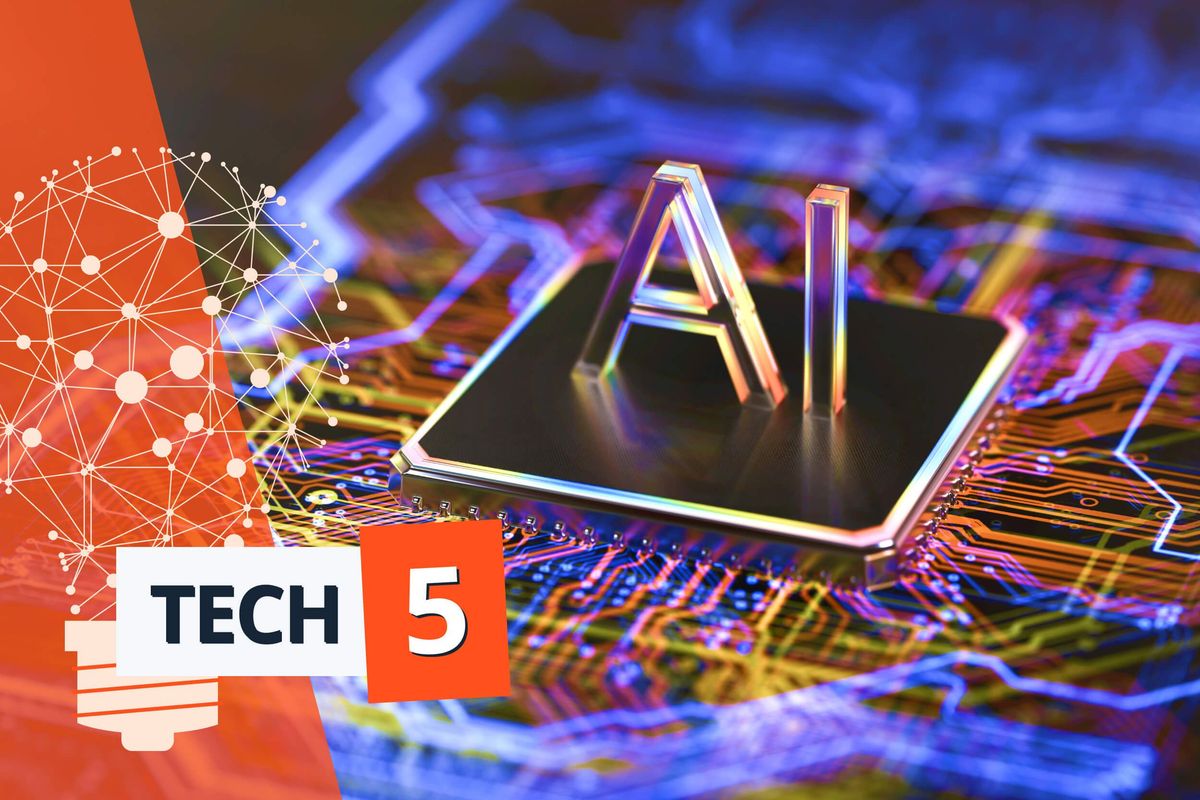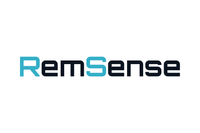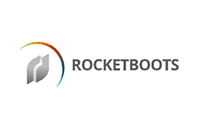Tech 5: CoreWeave Sets IPO Date, Google to Acquire Wiz
Analysts at CNBC project that CoreWeave will be valued at US$26.5 billion, although that figure could go as high as US$32 billion.

The tech landscape presented a dichotomy this week: company growth juxtaposed with market volatility over concerns that US President Donald Trump’s tariffs could upend global trade and lead to a recession.
“Inflation has started to move up,” US Federal Reserve Chair Jerome Powell said after a two day meeting that culminated in the interest rate target remaining between 4.25 and 4.5 percent.
“There may be a delay in further progress over the course of this year,” he added.
Despite those comments, Powell disputed a survey released this week from the University of Michigan that indicates a significant rise in long-term inflation expectations.
Wall Street witnessed a tech stock downturn mid-week that impacted all major players. Meta Platforms' (NASDAQ:META) decline on Wednesday (March 19) finalized year-to-date losses for all the so-called “Magnificent Seven.”
Amid this economic flux, innovation continued to forge ahead.
On Sunday (March 16), the Information reported on a 4.5 gigawatt power acquisition deal between Engine No. 1 and Crusoe, an energy startup backed by NVIDIA (NASDAQ:NVDA). Under the terms of the agreement, Engine No. 1 will fund the installation of aero-derivative gas turbines provided by GE Vernova at Crusoe's data centers. This significant energy deal highlights the drive for artificial intelligence (AI) infrastructure development, even as market dynamics shift.
Beyond these major developments, the week also saw acquisitions, partnerships, valuation adjustments and the latest update on a highly anticipated initial public offering (IPO), reflecting the tech sector’s dynamic and ever-evolving nature.
Here's a look at other key events that made tech headlines this week.
1. NVIDIA shares AI advances at GTC event
NVIDIA's annual GTC conference showcased the company's aggressive AI push, with CEO Jensen Huang unveiling Blackwell Ultra, the next lineup of chips, and platforms designed to power the next generation of AI applications.
The event, while demonstrating NVIDIA's technological leadership, coincided with share price volatility.
Before Huang’s keynote speech on Tuesday (March 18), Amazon (NASDAQ:AMZN) announced price cuts on its competing AI chips, resulting in a slight dip in NVIDIA's share price.
Conversely, quantum computing stocks like D-Wave Quantum (NYSE:QBTS) and Quantum (NASDAQ:QMCO) experienced surges ahead of the speech, reflecting the overall excitement surrounding AI's potential.
Huang highlighted major partnerships in sectors like automotive and entertainment, as well as a significant focus on robotics. Investor enthusiasm for robotics has been heightened in Q1, with experts eyeing robotics as the next major growth area. This aligns with NVIDIA's own strategic focus on humanoid robots and related technologies.
NVIDIA ended the week down 4.15 percent.
2. Google inks partnership for AI chip strategy
Google (NASDAQ:GOOGL) is reportedly partnering with Taiwan's MediaTek (TPE:2454) on a newer version of Google’s AI tensor processing units (TPUs), which are scheduled for production next year.
According to the Information individuals involved in the project say Google will continue its working relationship with its longtime AI chip partner Broadcom (NASDAQ:AVGO). A Broadcom employee confirmed this report, adding that Google’s deal with MediaTek stems from MediaTek’s lower charges and its longstanding relationship with global chip production leader Taiwan Semiconductor Manufacturing Company (NYSE:TSM).
TPUs are essential to Google's AI strategy, powering both its internal AI research and the AI services provided by the Google Cloud Platform. These chips are deeply integrated into Google's software and services, allowing for highly optimized performance for Google's specific AI workloads. For example, TPUs are used extensively within Google's search infrastructure and for their large language models.
TPUs are designed with a strong focus on the types of computations that Google's AI models perform. This specialization allows for very high efficiency in those specific workloads. Google makes TPUs available through its Google Cloud Platform, which allows other developers and researchers to access this specialized hardware.
TPUs are deeply integrated into Google's software and services and are essential to Google’s AI strategy. They power both its internal AI research and the AI services provided by the Google Cloud Platform. Amping up production will allow Google to provide TPUs to other companies, as well as for its own internal projects.
3. CoreWeave sets date for IPO
CoreWeave announced the launch of its IPO on Thursday (March 20), filing a registration to offer 49 million shares of its Class A common stock to the public and existing shareholders.
The shares will be priced between US$47 and US$55 each.
According to the filing, the company is seeking to raise up to US$2.7 billion through the offering. Analysts at CNBC project CoreWeave will be valued at US$26.5 billion, although that figure could go as high as US$32 billion. Sources for Bloomberg say the IPO, which is scheduled for March 27, is oversubscribed.
The IPO is being led by Morgan Stanley (NYSE:MS), JPMorgan (NYSE:JPM) and Goldman Sachs (NYSE:GS), with 11 other advisers participating. CoreWeave’s shares will trade on the Nasdaq under the symbol CRWV.
4. Google to acquire Wiz, strengthening cloud security offerings
Google has agreed to buy cybersecurity startup Wiz for US$32 billion in cash, the company said on Tuesday.
The acquisition will significantly enhance Google's Cloud platform by allowing the company to offer a more comprehensive and robust security solution to its clients. Wiz's platform, which is designed to operate seamlessly across multiple cloud environments, addresses the needs of modern businesses that often utilize a multi-cloud strategy.
Notably, this was Google’s second attempt to acquire Wiz, having offered the firm US$23 billion in July 2024. The deal ultimately fell through, with Wiz saying it would pursue an IPO instead.
Google’s persistence underscores the growing importance of cybersecurity in the digital landscape. As businesses increasingly migrate their operations to the cloud, the need for effective cybersecurity measures that can span multiple cloud platforms becomes crucial.
5. Perplexity AI eyes major funding round
Perplexity AI, an AI search engine startup competing with Google, is reportedly in early discussions to raise between US$500 million to US$1 billion in a new funding round. An anonymous source for Bloomberg who is familiar with the matter confirmed the potential deal, adding that it would double the company’s valuation to US$18 billion.
The potential funding round comes at a time when Perplexity AI is experiencing notable growth and traction in the competitive market. The company has secured significant support from prominent investors, including SoftBank Group's (TSE:9984) Vision Fund 2, Nvidia and Jeff Bezos, and its valuation has tripled twice in the previous year. According to a source, the company's current annual recurring revenue is close to US$100 million.
While the funding round is still in its early stages and subject to change, the potential doubling of Perplexity AI's valuation highlights the growing interest in and recognition of the company's disruptive potential. As users become increasingly concerned about data privacy, algorithmic bias, and the dominance of a single search provider, Perplexity AI's focus on transparency, user control and ethical AI practices may be resonating with a growing segment of the market.
Don't forget to follow us @INN_Technology for real-time news updates!
Securities Disclosure: I, Meagen Seatter, hold no direct investment interest in any company mentioned in this article.
- How to Invest in OpenAI's ChatGPT ›
- 12 Generative AI Stocks to Watch as ChatGPT Soars ›
- AI Stocks: 9 Biggest Companies in 2024 ›
- Technology Stocks: 10 Biggest Companies in 2024 ›


